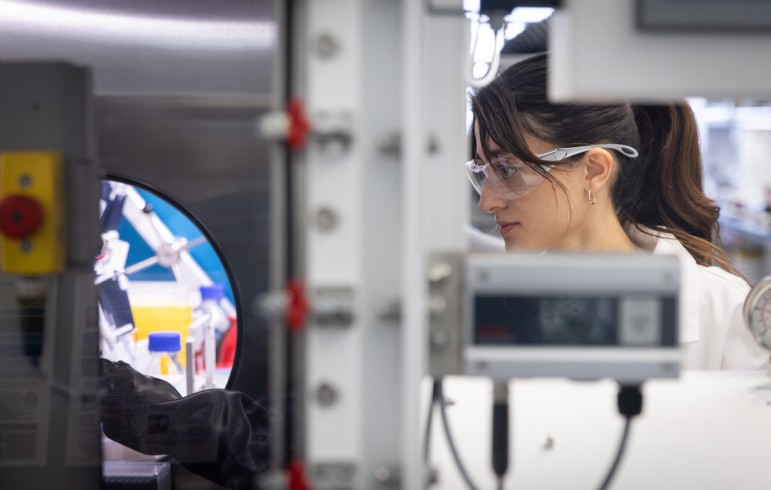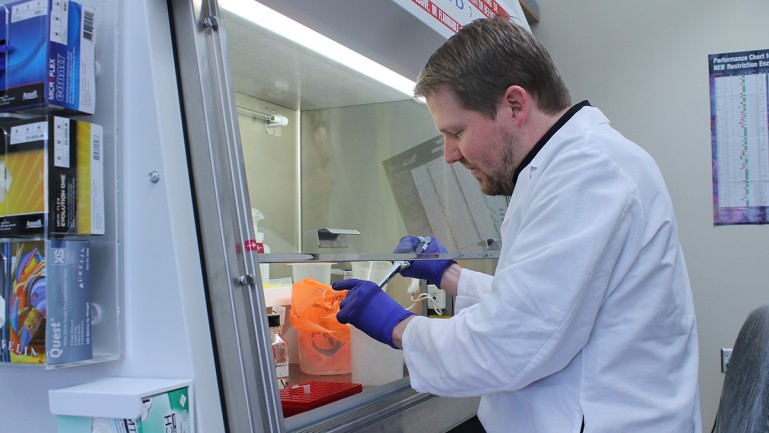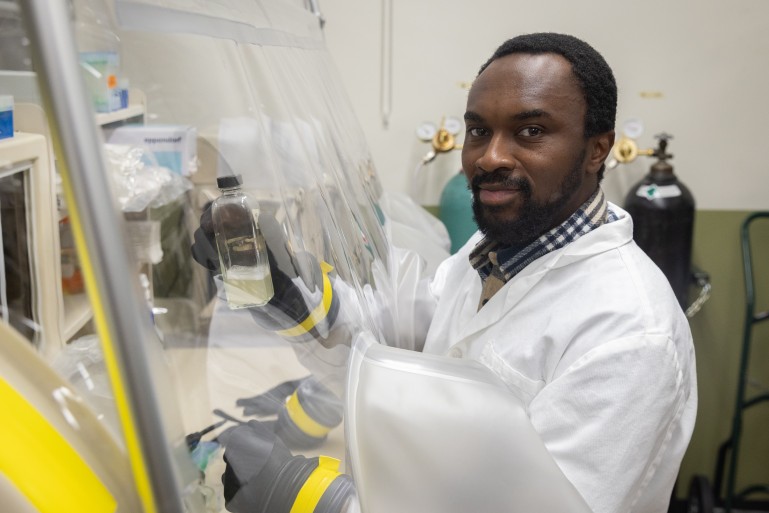Marianne Fairbanks is bringing decades of experience with dyes, fibers, and design to the development of a technology she’s been dreaming of for years: solar textile.
SHINE Medical Technologies has received approval from the Nuclear Regulatory Commission (NRC) to begin constructing a plant in Janesville to make a medical isotope needed in about 20 million procedures annually in
For a world hooked on fossil carbons, the vials of amber syrup in Jim Dumesic’s lab are full of sweet potential. Dumesic’s group caused a stir in research circles and the media in 2014 by publishing a paper in the journal Science describing a new scheme for breaking down biomass and unlockin
An assistant research specialist at the Great Lakes Bioenergy Research Center (GLBRC) has designed a new strain of yeast that could improve the efficiency of making fuel from cellulosic biomass such as switchgrass.
A University of Wisconsin-Madison chemical and biological engineering professor known for his work in chemical process monitoring and control, a chemical engineering alumnus who is a leader in the pharmaceutical industry, an environmental engineer who has made significant contributions to water c
Grassland bioenergy could be a win-win for Wisconsin’s farmers and its wildlife. A new University of Wisconsin—Madison and Wisconsin Department of Natural Resources study shows that converting marginal farmlands to perennial grassland biofuel crops could spell big gains for both landowners a



